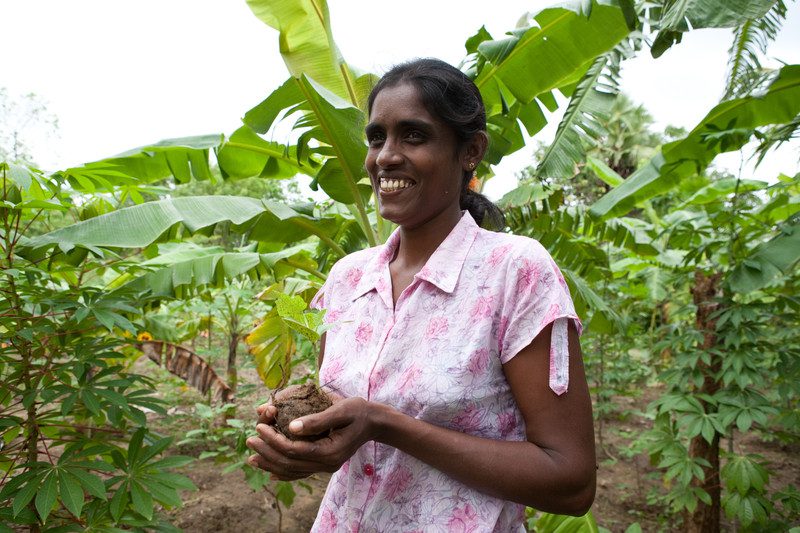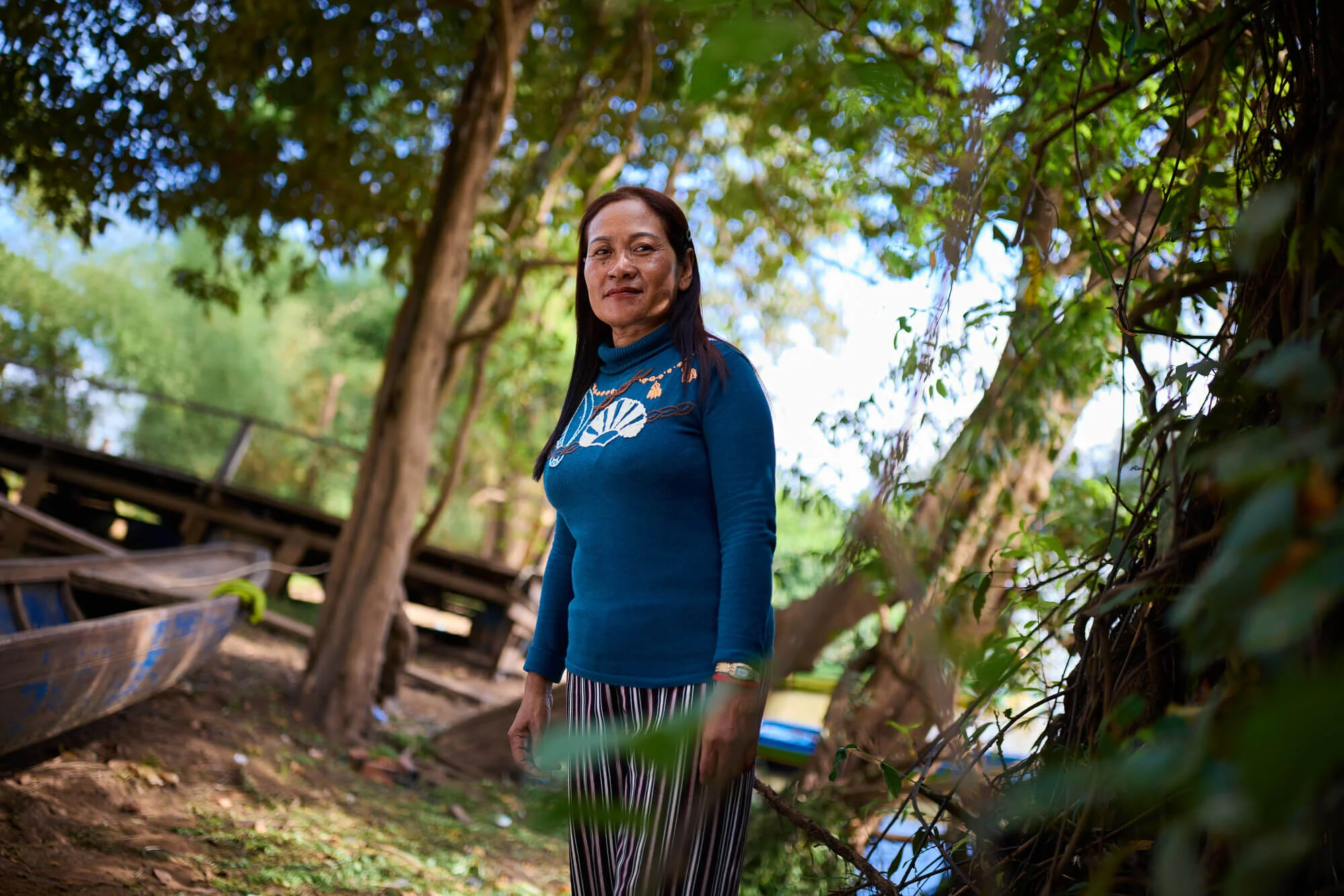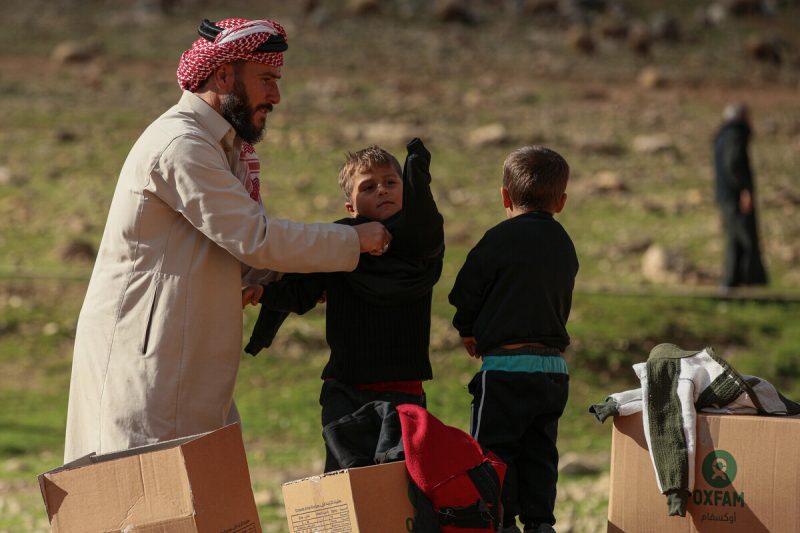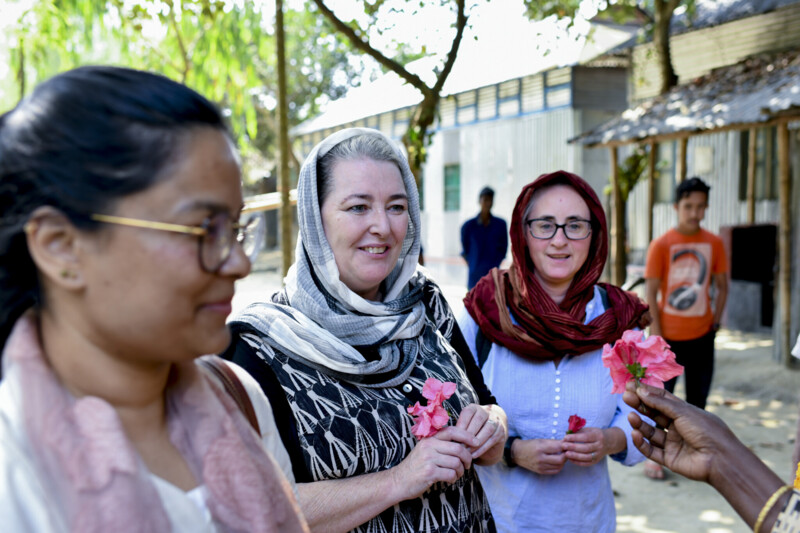It’s a global phenomenon affecting us all: the skyrocketing price of food. Over the past few years, the drastic effects of climate change on crops, insatiable consumer demand for fruit and veges outside of their natural seasons, and unfair trade have upset the natural balance — and now we’re paying the price. Literally.
Not surprisingly, this problem is most serious in developing countries, with women bearing the brunt. Just ask Sri Lankan mother-of-three, Chandrani Kahatadeniya, the ‘face’ of our Stop Hunger Appeal. For years. Chandrani (34) struggled to make ends meet with the pittance she earned as a day labourer, unable to afford food for her family or send her kids to school.
Now she runs her own home gardening business, producing enough fruit and vegetables to feed her family and sell a healthy surplus. So how did she do it?
Speaking to Marian Reid, Chandrani sets the scene, describing what life used to be like before she got involved with Oxfam’s home gardening scheme.
Can you please tell us a bit about yourself?
I am married. I have three children. The eldest one is 15. The elder children have gone to school today. And the youngest is here with us at home.
What was your life like when you first arrived in Anuradhapura?
When we first came here it was dense jungle. We cleared the jungle and we made a small hut … We had lots of problems because we did not have any crops, and we did not have water. That was the life we lived. My husband gave us a small income, but it was barely enough to afford food.
Did you have enough food?
We bought this land, and even though there was a paddy field attached … it was not given to us. So there were shortages of food at that time. We did not have rice of our own. And also we did not have these vegetable crops then. We could not afford to eat rice all three meals. Sometimes we would just eat rice for two meals and then get a loaf of bread and eat that for lunch.
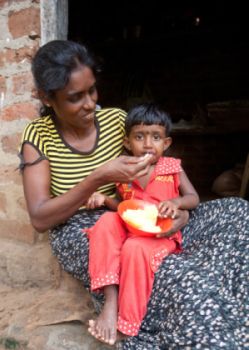
Were you able to eat nutritious meals?
We were not conscious of nutrition at that time. We did not know that we had to eat these good things to get nutrition for the family. We did not have enough income to eat nutritious food. We only wanted to suppress our hunger.
Did you ever have to take out a loan to buy food?
I obtained micro loans from various societies in the village.
Did you and your husband have debts?
Since my husband started his business he had to do a daily collection. Sometimes when he fell sick we had to borrow money from certain people, and we had difficulties paying the instalments of the loans. So in these situations we would have to discuss with officials and get extensions or some relief.
And you worked as a day labourer?
I worked as a day labourer when the children were small and when my husband was not able to work. I would go and do some odd jobs. At the end of the day we got a wage, but … that wasn’t sufficient to make ends meet. Especially with the rising costs of living, it was very difficult … with that scanty amount.
What were some of the problems you and your husband experienced before you started home gardening?
Before, we had a problem of accessing water; we could not cultivate paddy fields and vegetables … Then we made a request to RGNK [local Oxfam partner Rajarata Gami Shakthi Nirmana Kawaya] to provide us with a water irrigation system, and it is a result of those requests that we implemented this lift irrigation scheme. Now we have enough water so we can cultivate paddy, we can cultivate vegetables.
Before, even though we cultivated, sometimes floods and droughts came and destroyed our crops. But now, thanks to the efforts of RGNK and Oxfam, we have this irrigation system and we have water and we have a good time.
Why did you become involved with this home garden project with Oxfam?
We understood that we could go a long way with Oxfam. And we realised that we could get out of poverty by joining Oxfam. We got a lot of … training, and a lot of new experiences … So it is because we had some hopes for the future [and] wanted to get out of poverty that we joined Oxfam.
Are you still concerned about having enough food to eat?
Now we have no food shortages. We can afford to eat all the three meals. Whenever I want some vegetables, I can just walk to my garden, pluck it and … cook.
Next time: Chandrani talks about home gardening and her newfound self-confidence.
Find out more
Learn more about how we’re fighting hunger in Sri Lanka
Donate to our Stop Hunger Appeal and help women like Chandrani start growing
